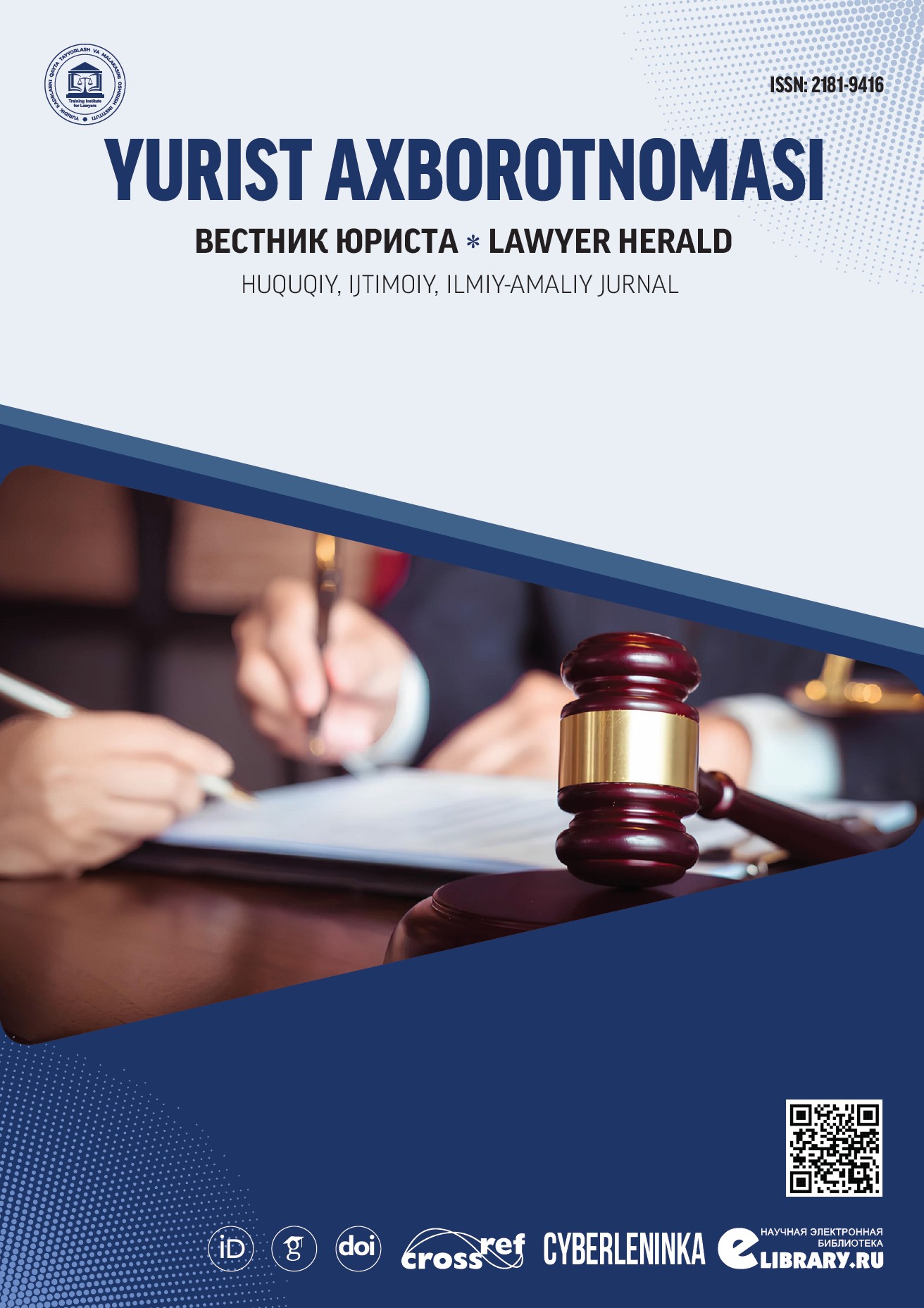Abstract
This article analyzes the integration of artificial intelligence (AI) technologies into parliamentary activity, in particular, using the example of the Legislative Chamber of the Oliy Majlis of the Republic of Uzbekistan. The author emphasizes that the role of artificial intelligence in modern technological development and its impact on
the parliamentary system is comparable to transformational innovations in history, such as the wheel, printing house, electricity, telephone, and the Internet. The study examines the possibilities of using AI technologies for drafting legislative proposals, analyzing normative legal documents, conducting legal expertise of proposed and
adopted laws and legislative acts, automatic transcription of parliamentary speeches, real-time translation of documents, and automation of related processes. It is especially noted that in the conditions of Uzbekistan, these technologies play an important role in increasing the openness, transparency, effectiveness, and public trust of
legislative activity. The article also analyzes in depth the problems that may arise during the implementation of AI - such aspects as the need for the human factor, the accuracy of technologies, transparency, and adherence to democratic principles. In conclusion, the possibilities of modernizing the activities of the Legislative Chamber and further adapting the legislative process to the needs of society through the rational and responsible use of artificial intelligence are substantiated.
References
How parliaments can harness the benefits of AI democratically. 20 August 2024. https://www.wfd.org/
commentary/how-parliaments-can-harness-benefits-ai-democratically
A democratic approach to global AI safety. 27 October 2023. https://www.wfd.org/what-we-do/
resources/democratic-approach-global-ai-safety
IPU, World E-Parliament Report 2022, www.ipu.org/file/15804/download ,p. 23.
See Y.M. Citino, L’intelligenza artificiale applicata ai processi decisionali parlamentari: una griglia di
funzioni e una stima dei rischi per la neutralità delle tecnologie, in Rassegna Parlamentare, 3/2022, 629-674
and the comprehensive study edited by F. Fitsilis – G. Mikros, Smart-Parliaments. Data-Driven Democracy,
Cheshire, European Liberal Forum, 2022.
Bot-Legislator and AI-powered legislative processes. By Ylenia Maria Citino on June 26, 2023.
Parliaments must get to grips with AI. By Dr. Fotis Fitsilis, Hellenic Parliament. 16 July 2024. https://
www.wfd.org/commentary/parliaments-must-get-grips-ai
Artificial intelligence: draft IPU resolution and “Use cases” for AI in parliaments published. 29 July 2024.
in-parliaments-published
“International collaboration and examples”. https://www.popvox.org/representative-bodies-in-the-aiera/
international
“Expert perspectives on AI in parliament,” Inter-Parliamentary Union Innovation Tracker (October 21,
.
Artificial Intelligence in the Argentine Chamber of Deputies: A Technological Revolution in Legislative
Practice. About the Argentine Chamber of Deputies. Written on January, 2024.
“A view from Estonia: AI for advanced beginners,” IPU Innovation Tracker Issue 16 (October 21, 2023).
“Estonian parliament uses speech recognition technology to create verbatim records,” e-Estonia
(September 2020).
“Taiwan Parliament Makes History with First AI Voice Clone Interpellation”. ElevenLabs, 3 September
, https://elevenlabs.io/blog/taiwan-parliament.
Қазақстанда заңдарды жасанды интеллект әзірлейтін болады: миф немесе шындық. https://kaz.
inform.kz/news/kazakstanda-zandardi-zhasandi-intellekt-azrleytn-boladi-mif-nemese-shindik-e090d6/
“Ukrainian Parliament to Integrate Artificial Intelligence in Legislative Process” December 2, 2024.
process-4170
O‘zbekiston Respublikasi Prezidenti Shavkat Mirziyoyevning Parlamentlararo Ittifoqning 150-Assambleyasidagi nutqi. 07.04.2025. https://president.uz/oz/lists/view/8034
